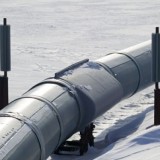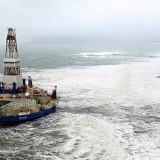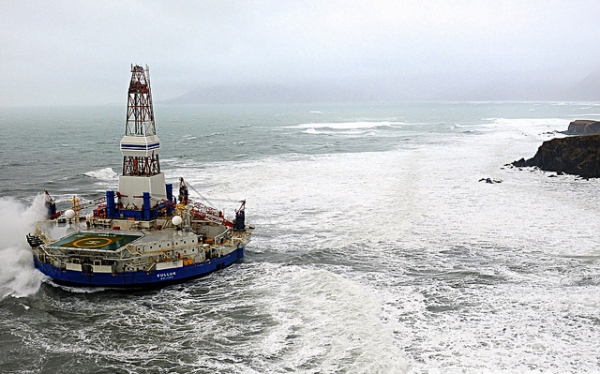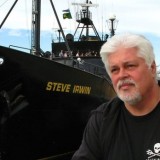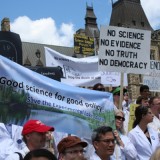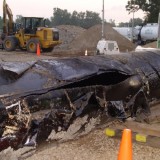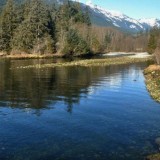Yesterday, I joined several thousand British Columbians in submitting my comments to the environmental assessment process for the proposed Site C Dam in northeast BC. While it will likely take a few days for the most recent submissions to be registered on the government website for the process, judging by early indications, this was one of the largest-ever responses by the BC public to an environmental assessment – a clear sign of how much this issue matters to British Columbians.
The Sierra Club and civic engagement driver LeadNow teamed up to facilitate online submissions and are reporting over 3,400 comments filed by yesterday’s deadline – none of which appear yet on the official review panel website. That’s on top of the close to 1,000 comments already logged prior to that campaign, which kicked in during the final couple days of commenting. So we can expect to see a final tally of well over 4,000 submissions, comparable only to the highly contentious Enbridge Northern Gateway Pipeline proposal.
Herewith my own letter, addressed to Linda Jones, Panel Manager for the Canadian Environmental Assessment Agency:
Dear Ms. Jones,
As someone whose family settled in the Peace Valley a century ago, before losing our home, Goldbar Ranch at 20 Mile, to the first big hydro project on the Peace, I take very seriously this latest threat to the valley – Site C Dam.
Peace country is home to some of the best agricultural land in the province and critical fish and wildlife habitat. The unique soil and topographical conditions of the valley yield one of the longest growing seasons in BC. My family grew all manner of fruits, vegetables and grains there decades ago – until that sustainable way of life was taken away from us. I never got the chance to work my family’s land.
Today, we face a food security crisis in BC, producing just 40% of our total needs. We do not have an energy self-sufficiency crisis. I direct you to the work of my colleague, the independent economist Erik Andersen, who has clearly demonstrated that we have plenty of power for the foreseeable future…Unless, that is, we ramp up fracking operations, mines, and build 5-6 massively energy intensive Liquefied Natural Gas (LNG) plants on BC’s coast.
For evidence of this, you need look no further than our own premier’s recent comments. Ms. Clark told Global TV last week, “You can’t power up these huge [LNG] facilities without more power, so BC Hydro’s going to have to build Site C – we’re in favour of making that happen.” Last year, she acknowledged to a crowd in Fort St. John that just one of these proposed plants – Shell’s joint project with three Asian partners – would eat up the entire load of Site C, that being 1,100 megawatts.
Incidentally, how is the public supposed to take seriously this process when the outcome has clearly already been decided by our political leadership?
Despite the premier’s Orwellian assurances to the contrary, fracked natural gas, converted to LNG, then shipped halfway around the world to be decompressed and burned is not in any way, shape or form “clean energy”. Nor is a massively ecologically destructive mega-dam to power this gas development. In this era of climate change and drought conditions, I do not support using taxpayers’ and ratepayers’ dollars to subsidize the fossil fuel industry – nor to divert, contaminate and destroy billions of litres of precious fresh water, which is what these projects will do.
I respect Indigenous peoples’ rights and voice, as I respect the farming families still tilling the yet unspoiled land of the valley. I take very seriously the unified, unambiguous opposition of the Treaty 8 First Nations and farmers in the region to this project.
Moreover, I take the forced removal of the BC Utilities Commission from its role as the public’s watchdog in evaluating this project as patently undemocratic.
The lack of review of the project from a meaningful cumulative effects approach is also deeply troubling – especially in light of a recent report from the David Suzuki Foundation showing that over 65% of the region has already been marred by heavy industrial impacts – dams, roads, logging, mining, oil and gas.
This process, this project, and the draconian values that underpin them are deeply flawed.
I am steadfastly opposed to the $8 Billion-plus subsidy of the fossil fuel industry, the destruction of vital ecosystems and farmland, and the trampling on First Nations and citizens’ democratic rights that the proposed Site C Dam represents.
I urge you to do the right thing and reject this project.
Sincerely,
Damien Gillis


